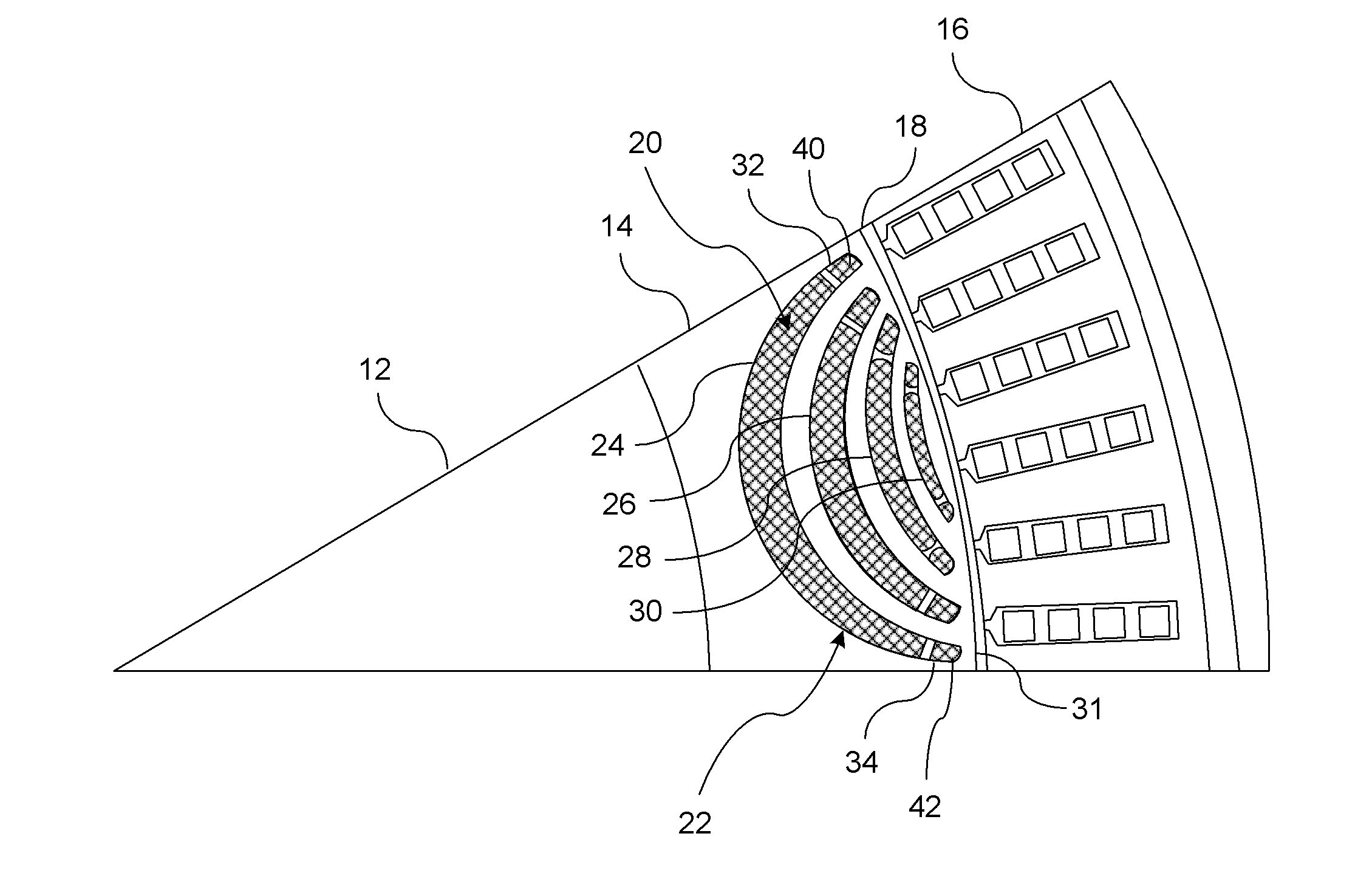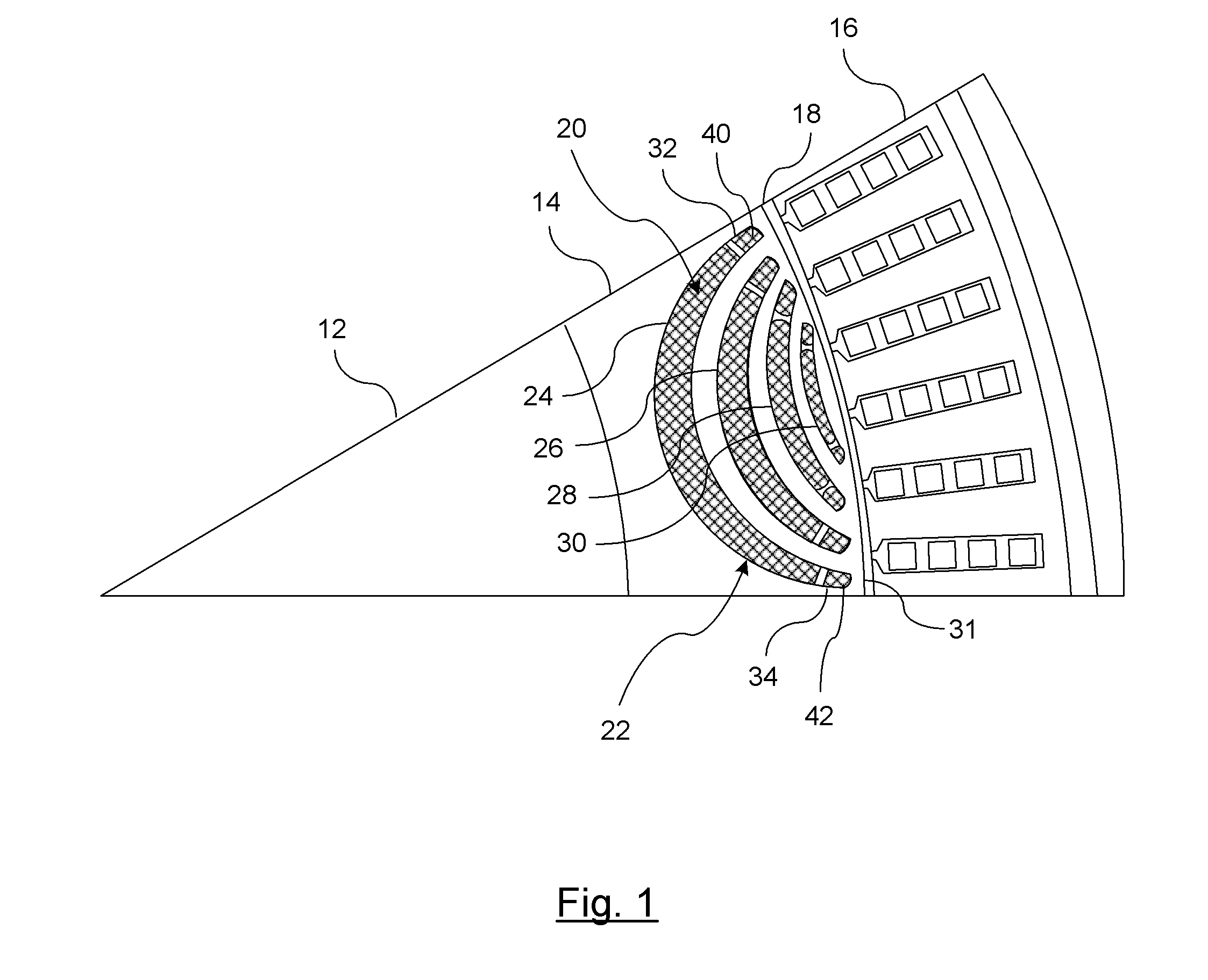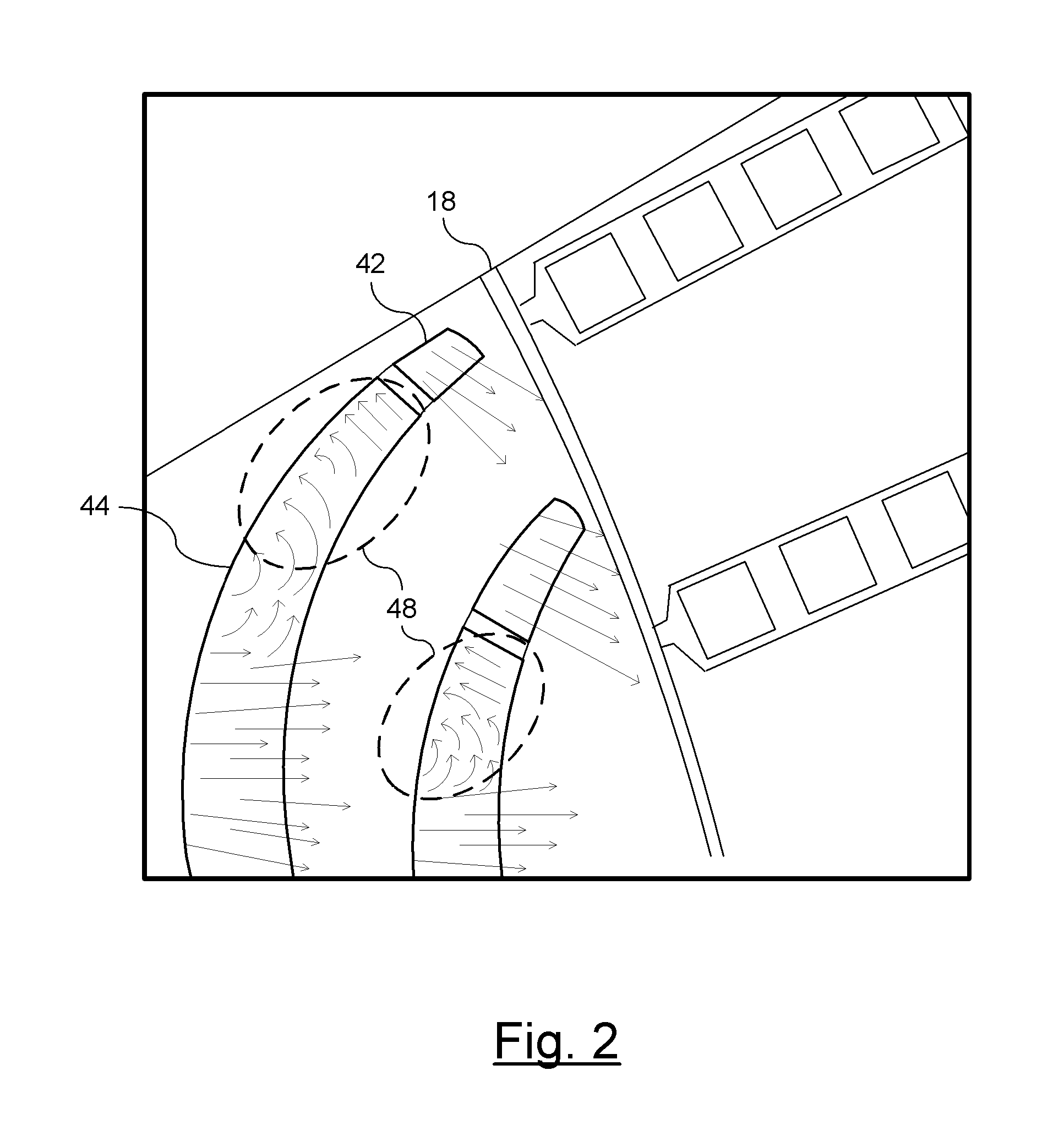Bi-permanent magnets in synchronous machines
a permanent magnet and synchronous machine technology, applied in the direction of dynamo-electric machines, magnetic circuit rotating parts, magnetic circuit shape/form/construction, etc., can solve the problems of increasing the overall price of the motor, costly use of rare earth magnets in the motor, etc., to reduce the content and weight reduce the overall cost of the motor, and reduce the number of rare earth magnets used
- Summary
- Abstract
- Description
- Claims
- Application Information
AI Technical Summary
Benefits of technology
Problems solved by technology
Method used
Image
Examples
Embodiment Construction
[0010]There is shown in FIG. 1 a section view of a permanent magnet motor 10. The permanent magnet motor 10 includes a rotor 12 coupled to a shaft 14. The rotor can include any number of poles (e.g. 2, 4, 6, etc). The sectional view as shown illustrates one pole of the rotor 12 (e.g. north pole). A stator 16 is radially offset from the rotor 12 and is separated therefrom by an air gap 18.
[0011]The function of the rotor 12 is to drive a component coupled to the shaft 14. The stator 16 when excited by an excitation voltage (e.g., 3-phase supply) generates a rotating magnetic field within the motor 10. The rotor, which functions as a permanent magnet locks in with the rotating magnetic field generated by the stator 16. The rotor 12 rotates along with the rotating magnetic field. When the rotator locks in with the rotating magnetic field, the motor 10 is in synchronization.
[0012]The rotor 12 as shown in FIG. 1 utilizes interior permanent magnets 20. It should be understood that the moto...
PUM
 Login to View More
Login to View More Abstract
Description
Claims
Application Information
 Login to View More
Login to View More - R&D
- Intellectual Property
- Life Sciences
- Materials
- Tech Scout
- Unparalleled Data Quality
- Higher Quality Content
- 60% Fewer Hallucinations
Browse by: Latest US Patents, China's latest patents, Technical Efficacy Thesaurus, Application Domain, Technology Topic, Popular Technical Reports.
© 2025 PatSnap. All rights reserved.Legal|Privacy policy|Modern Slavery Act Transparency Statement|Sitemap|About US| Contact US: help@patsnap.com



